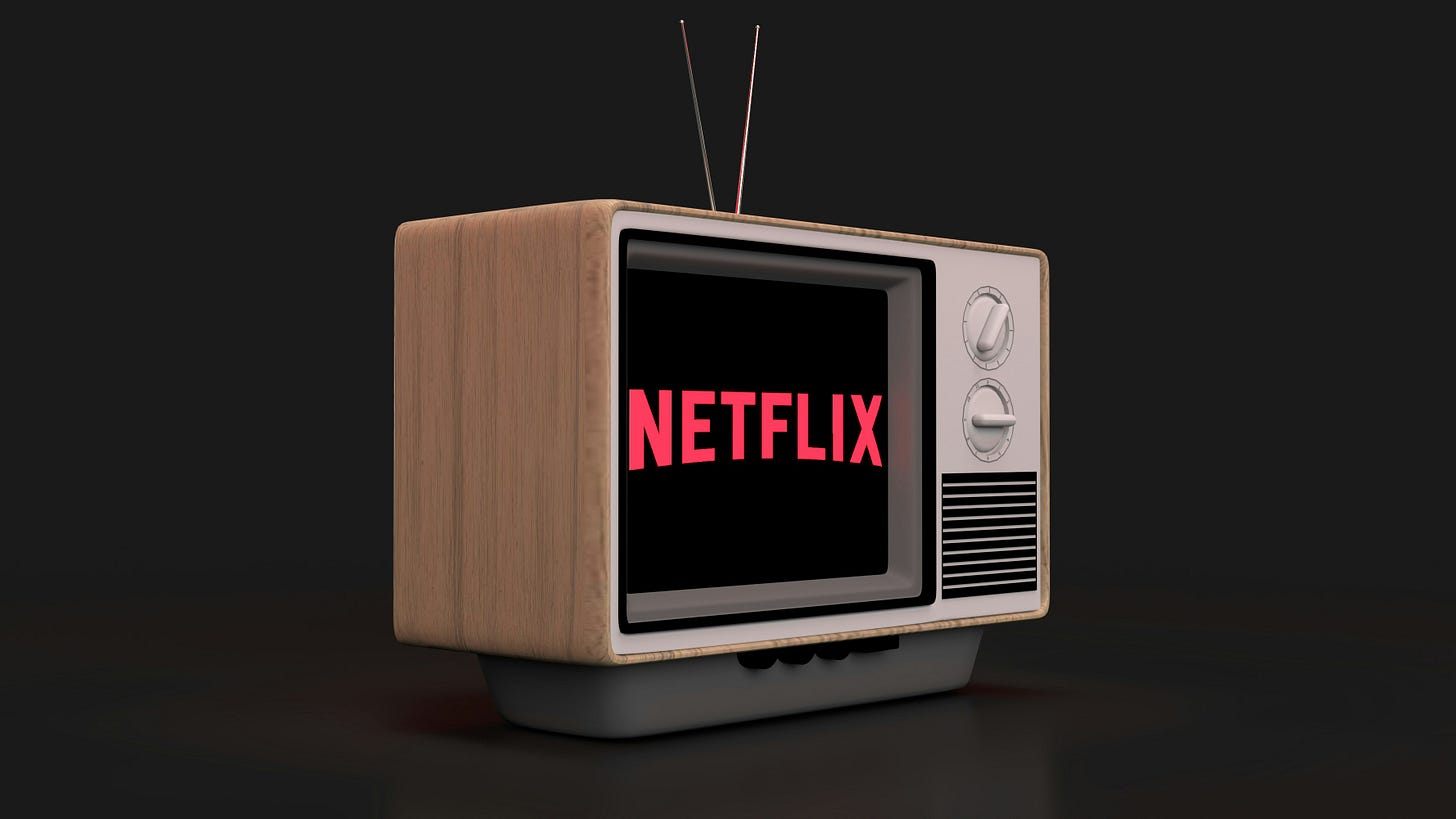Netflix Wants You to Chill With the Password Sharing
Netflix's efforts to stop password sharing are rooted in the economic concept known as excludability.
You are reading Monday Morning Economist, a free weekly newsletter that explores the economics behind pop culture and current events. This newsletter lands in the inbox of thousands of subscribers every week! You can support this newsletter by sharing this free post or becoming a paid supporter:

Netflix has been working hard to find a way to crack down on password sharing and has already updated its FAQ page in countries where it has already started testing extra membership fees for account sharing—Chile, Costa Rica, and Peru. Last week, the company briefly announced a plan that would require users to pick a “primary location” and require connected devices to log in from that location at least once every 31 days. Failure to connect would result in accounts being charged a fee for “extra members.” The economic concept of excludability is central to understanding why Netflix wants to stop its users from sharing account passwords.
Products can typically be characterized along two dimensions: excludability and rivalrousness. The excludability dimension considers the ability of a seller to restrict access to their product, while the rivalry dimension refers to the cost of providing the product to another user. We can analyze different types of products as these characteristics are adjusted. The most common types of goods are private goods, artificially scarce goods, common resources, and public goods.
An artificially scarce good, which is also known as a club good, is a product that is excludable and non-rivalrous. While excludability refers to the company’s ability to restrict access, the non-rival nature of Netflix refers to the fact that one person's use of the product doesn’t reduce the amount of product available to others. Essentially, it does not really cost Netflix anything to provide access to one more device.
Netflix, as a provider of streaming content, is a great example of a club good. It restricts access to its content to paying subscribers and sets a price for that access that is above its marginal cost. This allows the company to earn excess profits by charging more for access than it costs to operate the service. However, Netflix’s ability to restrict access is threatened by password sharing. When users share their passwords with friends and family, the number of people accessing the content increases beyond what was intended by the original subscriber. This makes the content less excludable and more like a public good.
A public good is a product that is both non-excludable and non-rivalrous. A public good has the same non-rival dimension as a club good, but the excludability dimension has been altered. When an item is non-excludable, providers are unable to restrict access to those who don’t pay for the item. Netflix would never fully become a public good because someone still needs to pay for the initial account access, but password sharing allows the product to move closer to the public good classification. Netflix already has some limits in place on the number of devices that can access the service at any one time.
The reason Netflix doesn’t want to see its product move toward one more closely aligned with public goods is that those products are not as profitable as club goods. The inability to restrict access and charge a price above marginal cost means that providers of public goods cannot earn excess profits. In the case of Netflix, the more its content becomes like a public good, the less it will be able to charge for access, and the lower its profits will be. Thankfully for Netflix, nearly a third of subscribers are willing to pay higher subscription prices in order to share their passwords with others:
In addition to profitability, Netflix's efforts to stop password sharing are likely also driven by customer growth. As the most popular streaming service in the United States, Netflix has faced challenges in attracting new members. With a perception that everyone who wants to join has already done so, the company needs to be creative if it wants to expand its customer base. This is why it introduced a cheaper, ad-supported plan in November. While profitability is a key factor, increasing its customer base is also a priority for Netflix.
This problem also isn’t unique to Netflix. Given its size in the streaming market, any changes to its model will likely be adopted by other streaming platforms in the future. While cost is the top factor in determining whether to subscribe to a platform, 43% of streaming users also consider the ability to share their login an important consideration.
Netflix's efforts to stop password sharing are rooted in the economic concept of excludability. The company wants to maintain the ability to restrict access to its content, thereby maintaining its status as a club good and its ability to earn excess profits. As password sharing becomes more prevalent, the content becomes less excludable and more like a public good, which is not as profitable.
Netflix’s Stranger Things was the most streamed show in the United States in 2022, registering a whopping 52 billion minutes [Variety]
There are an estimated 30 million households in the United States and Canada that use Netflix without paying for it [Netflix]
Netflix Films have been nominated for 16 different Academy Awards this year [Netflix]
In a 2022 survey, respondents reported being subscribed to an average of 3.55 streaming services per month, costing $42.38 monthly [NPR/Ipsos]
In a letter to shareholders, Netflix reported a profit of $4.49 billion for 2022 [Netflix]







